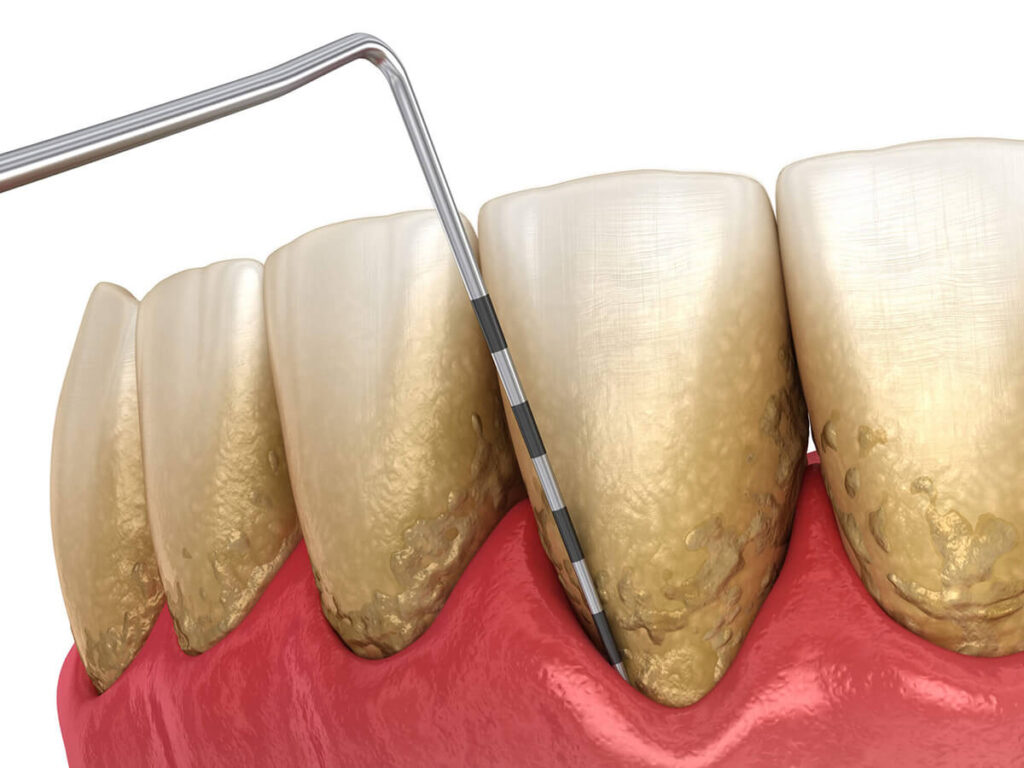Gum Disease (Periodontal Disease)
Gum disease, or periodontal disease, is a common but treatable condition affecting many patients. At Excel Dentistry and Braces, we offer specialized periodontal treatments to manage every stage of gum disease and support your overall oral health.
Understanding Periodontal Disease
Periodontal disease, also known as gum disease or periodontitis, is an infection that affects the gums and bones surrounding your teeth. Early treatment is essential, as the health of your gums and bones is vital for strong teeth and a healthy smile. If you’re noticing signs of gum disease, it’s important to see a gum disease dentist to help prevent progression and preserve your oral health.

-
What are the early signs of periodontal disease or gum disease?
The first stage of gum disease, gingivitis, may present as mild redness, swelling, or minor bleeding during brushing or flossing. If untreated, this can lead to deeper pockets around the teeth, where bacteria can accumulate. Eventually, bacteria can reach the bone and connective tissues, risking tooth loss.
Common symptoms of periodontal disease include:
- Bad breath
- Bleeding gums during brushing or flossing
- Deep periodontal pockets
- Gaps between teeth
- Gum recession
- Heavy tartar buildup
- Teeth appearing “long”
- Loose or shifting teeth
- Discomfort when chewing
- Red, swollen gums
- Visible bone loss on X-rays
If you use tobacco products, symptoms may be less noticeable since gums may not show typical signs of inflammation.
-
How is periodontal disease or gum disease treated in the dentist's office?
Treatment for gum disease depends on its severity. At Excel Dentistry and Braces, we offer effective gum disease treatments, including:
- Scaling and root planing – For early to moderate stages of periodontitis, scaling and root planing involve deep cleaning below the gum line to remove plaque, tartar, and bacteria. This helps smooth root surfaces to promote healing and prevent future buildup.
- Bone grafting – In advanced cases of gum disease that have affected the jawbone, bone grafting helps stimulate new bone growth. This treatment strengthens the jaw, especially for patients who need dental implants to replace missing teeth.
-
Can gum disease be reversed with proper care?
The first stages of gum disease, such as gingivitis, can often be reversed with early detection and proper care. Maintaining good oral hygiene, regular dental visits, and recommended treatments can help control or even reverse the progression of gum disease.
Any Questions About Gum Disease?
If you have questions about gum disease treatment or are experiencing symptoms, our team at Excel Dentistry and Braces is here to help. Contact us to schedule an appointment and get expert care from a dedicated gum disease dentist.
